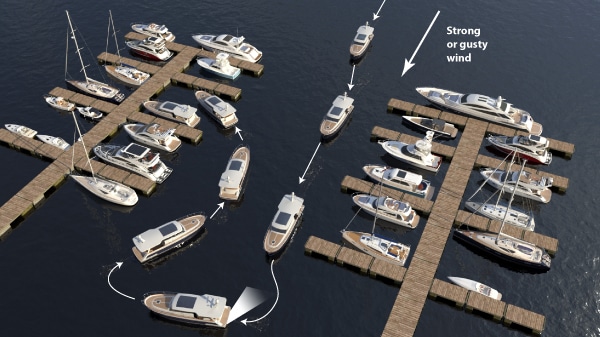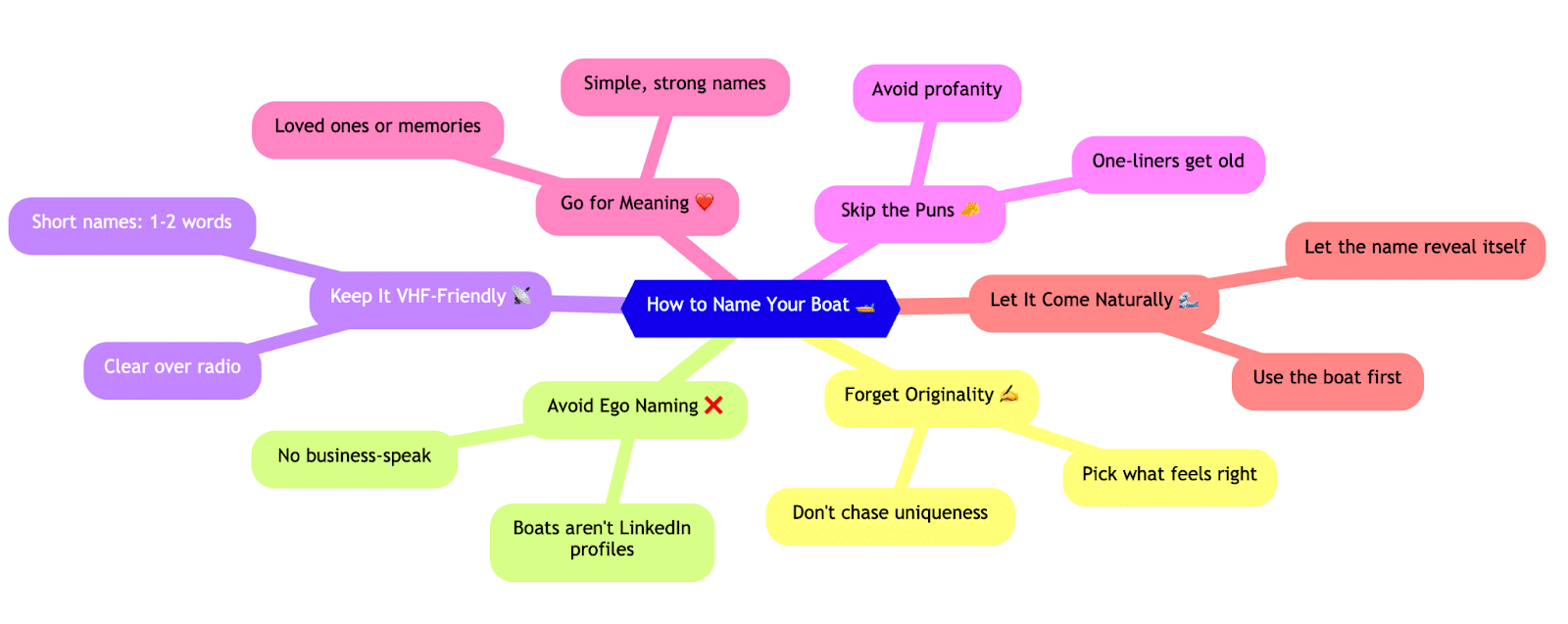Get started with powerboating with NauticEd’s FREE online Navigation Rules for Powerboats, or become a competent powerboater with the Skipper Large Powerboat Course – a comprehensive online powerboating course for beginner to intermediate powerboaters wanting to learn how to operate larger powerboats greater than 26ft. Or upgrade to the Bareboat Charter Master for Powerboats Bundle of online courses to also master multiday and near-coastal powerboating as well as charter powerboats on vacations.
How to Name Your Boat (Without Regret or Embarrassment)
Naming your boat is one of those things that sounds fun—until you realize every name you come up with has already been painted on five other hulls in your marina. Or worse, it sounds like a tax write-off or a bad joke you’ll regret saying over VHF. So here’s the deal: naming your boat doesn’t have to be complicated, but it should be intentional.
1. Skip the Pressure to Be “Original”
If you’re spending hours trying to come up with a name no one has ever thought of before, stop. The best boat names aren’t necessarily clever—they’re yours. There are already too many Aquaholics, Anchor Managements, and Pier Pressures out there. Don’t worry about originality. Just pick something that feels right and ignore the rest.
2. Avoid the Ego Trap
If your boat name sounds like a LinkedIn headline (Gross Margins, Quarterly Gains, Signing Bonus), ask yourself: is this about the boat or about showing off? Boats deserve better. They’re not business cards. They’re freedom, escape, and sometimes survival. Name yours with that kind of weight in mind.
3. Keep It Short and Radio-Friendly
One or two words max. Anything longer than that gets garbled over VHF. Think phonetic alphabet—if it’s not clear when you say it as “Victor Tango” or “Echo Lima,” it’s going to be a problem in bad weather or high traffic. Bonus points if it rolls off the tongue and won’t embarrass you when hailing the Coast Guard.
4. Profanity and Puns? Be Careful
Yes, names like Piece of Ship or Nauti Buoy will get a laugh—once. But you can’t say profanity over marine radio, and after the fifth time someone rolls their eyes at your “clever” pun, it stops being funny. If it feels like a one-liner, it probably is.
5. Name It After Something That Matters
Some of the strongest boat names come from real meaning: a loved one who’s gone, a favorite place, a character from a book, a line from a song that stuck with you. Even a mashup of names from your kids can work. Or keep it simple and powerful: Defiant. Resolute. Names that stand on their own.
6. Don’t Be in a Rush
You don’t need to name your boat on day one. Use her. Get to know her quirks, her rhythm, where she feels most alive—then name her. Let the name come from the boat, not the spreadsheet.
Your boat doesn’t need to be funny. Or edgy. Or clever. It needs a name that fits. Something that feels just as right pulling into your favorite anchorage as it does echoing over the radio. So skip the gimmicks, trust your gut, and give her something she’d be proud to carry.

Get started with powerboating with NauticEd’s FREE online Navigation Rules for Powerboats, or become a competent powerboater with the Skipper Large Powerboat Course – a comprehensive online powerboating course for beginner to intermediate powerboaters wanting to learn how to operate larger powerboats greater than 26ft. Or upgrade to the Bareboat Charter Master for Powerboats Bundle of online courses to also master multiday and near-coastal powerboating as well as charter powerboats on vacations.






